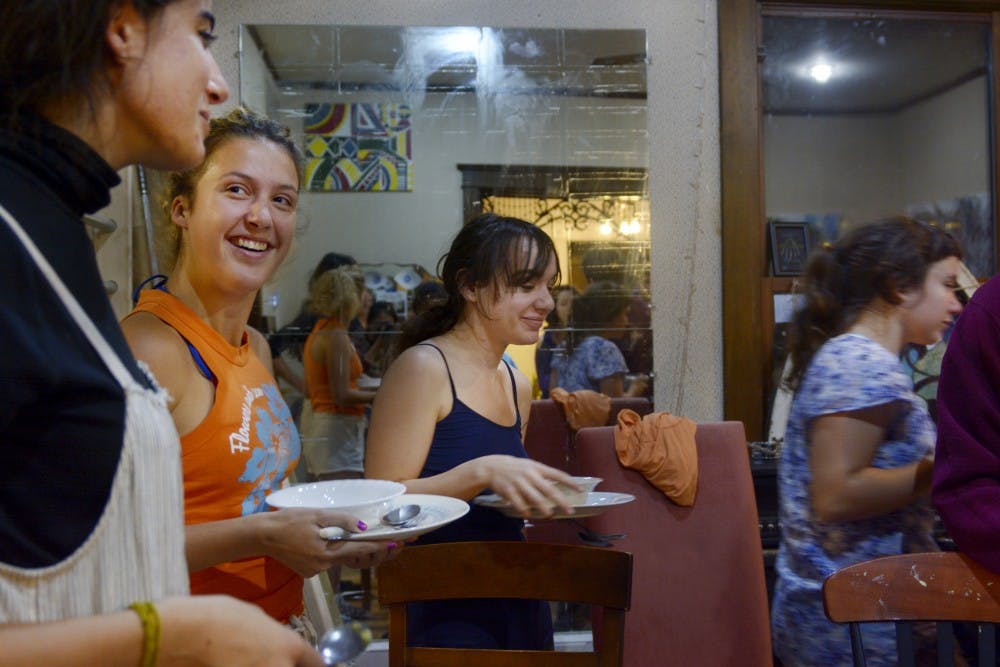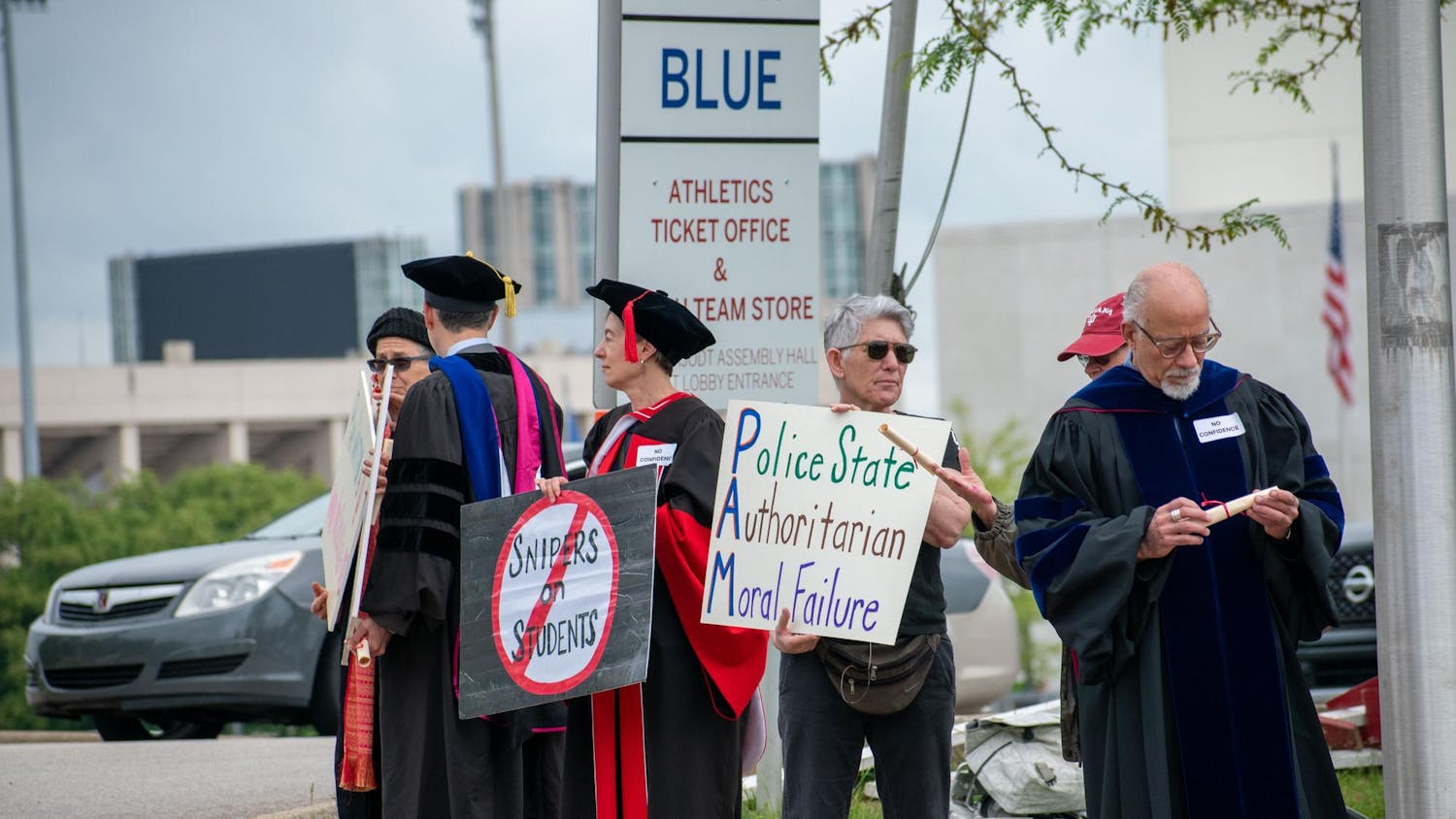Earthy smells of spices and garlic permeated the air in the kitchen at Middle Earth, a student cooperative living community on W Kirkwood Avenue. Most dishes had been moved to the front porch of the 19-bedroom house, where Bloomington Cooperative Living (BCL) held a potluck brunch and open house. But a chill persisted in the November air, so residents, visitors and a calico cat named Princess Aloe Vera flitted between the porch, living room and kitchen.
The kitchen at Middle Earth is spacious and filled with food bought in bulk. A stranger might first mistake it for a professional space, but then there’s the whiteboards on two walls – one offering a chore chart, one displaying a cooking schedule, because each of the 22 residents prepares a meal once a week – and there’s the cat. There’s the row of milk crates for sorting recycling, and hanging on a shelf there’s a long strip of cardboard on which someone’s penned a poem on the joys of composting.
“The scraps that many waste
And toss in the trash with such haste
Can do so much good
Yet misunderstood”
That mindset of sustainability defines Middle Earth and all of BCL, not just on an environmental level, but also on social and economic ones. BCL has three co-ops, including Helms Deep on Atwater and a house on Woodlawn, but Middle Earth is the only house the organization owns – it purchased the building from Middle Way House in 2012. Since then, board members and residents have found themselves balancing idealism with the realities of financial sustainability and individualism.
“Being a student co-op, people are still learning about themselves,” said Marya Case-Ruchala, a former BCL treasurer and resident. “Not only are you trying to figure out what works best for the organization, but you’re trying to figure out as an individual who you are.”
Case-Ruchala, who was in town for a BCL board meeting, said living in co-ops helped her determine her career path. She graduated from IU in May and now works at Northcountry Cooperative Development Fund.
But cooperative living also offers varying modes of more personal experience and development, from maintaining an environment where healthy eating is encouraged and relatively easy to running on a democratic system – one share, one vote.
“Living in an intentional community can kind of teach you there’s strength in compromising and taught me to interact with people in a way that there’s mutual respect,” said resident Esther Moudy-Gummere. “From the get-go, you relinquish the power to dominate a conversation.”
Case-Ruchala said the organizational system is her go-to pitch for people interested in living in co-ops: do you want to have control over your living situation?
But BCL is still a young organization – a group of cognitive science students founded it in 2007 – and it’s run into some issues. At one point, Case-Ruchala said, committees were dedicated to tasks like membership and finance, but a few people often wound up stuck with all the work. So BCL established two staffer positions – treasurer and head of membershipping – as part-time jobs, and it recently added a third, head of outreach.
Solving those issues has provided ample learning experience, Case-Ruchala said, and changes have improved the co-ops. But because many residents are students, turnover is high. She’s worried history could repeat itself.
“I kind of use my role as being able to keep part of that history alive in the organization, so if a problem comes up, I can say, ‘This is how we’ve handled it in the past,’” she said. “It’s important to remind people they’re just one of many people who have, are and will live in the co-op.”
And, ultimately, the goal is to provide a positive living environment. Moudy-Gummere said it’s crucial for Middle Earth to be a safe space, and the house has even started posting photos of designated “Safety Squad” members when they host parties. And food planning is built to suit the needs of vegetarians and people with food allergies.
The space extends beyond its residents, too. Middle Earth has opened its kitchen to organizations like Food Not Bombs, and it’s worked with community-supported agriculture.
“When we engage with each other, everyone is empowered,” Case-Ruchala said.
And despite any challenges BCL and Middle Earth have faced, she said she’s confident the house will thrive.
“I think it’s going to be around for a long time,” she said. “I was really concerned when I left. I just kind of hoped people would be able to take it on and make good decisions for each other. Of course, that’s what’s happening ... people are actually engaging in the house and taking pride in where they live.”






